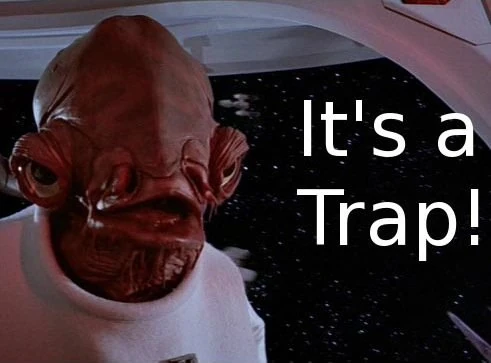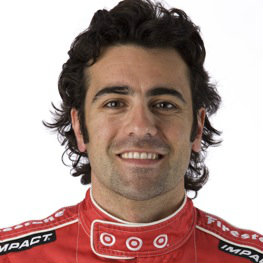A Dream Inspired
Back in early 2014, hearing James Altucher speak and listening to his podcast started me on a journey of getting serious about pursuing the "someday" goals that had always been in my mind but had never really come to much more than daydreams in the past.From the podcast I began making notes when I would hear authors interviewed whose books on lifestyle creation and breaking out of the conventional rat race resonated with me. I've mentioned previously in the blog that the very first one of these was The 4-Hour Workweek by Timothy Ferriss. The book is absolutely inspiring in terms of thinking about possibilities for how you could live your life differently and examples pulled from the author and from many others who have successfully said, "No, thanks!" to tradition and have pursued life a little differently.
A Gap Defined
The one thing that became utterly apparent from the start with Ferriss's book is that the author is a super A-type personality. He is hard-wired to achieve and investigate and experiment and life hack to find the unconventional. But as of 18 months ago, that is a skill I had not yet acquired. A lot of the ideas that the author presents in the book are incredibly seductive, but the rule-constrained, order-following, permission-seeking side that dominates my personality was highly resistant to doing more than dreaming about how I could somehow bring those things to pass in my life.The one thing that did stick with me from The 4-Hour Workweek is opening my eyes to the possibility that there is something better, different, new, and achievable if I will but reach out and grasp it. It made me hungry to find the pathway to get there from where I was, but I was going to need a few more breadcrumbs to find my way to that trail. So I kept listening to James and I kept making notes and I kept adding books to my collection--and consuming them! The books do no good collecting dust, so I would immediately start on them as soon as I purchased them. In addition to the Tim Ferriss title, I soon had books by James Altucher, Ramit Sethi, Charles D. Ellis and Burton G. Malkiel, Joel Greenblatt, Howard Marks, Matthew Capala, Peter Thiel and Blake Masters, Brian Tracy, Chris Gillebeau, and David Bach.
A Library in Construction
My collection grew slowly at first, because I was using my two credits per month from Audible to buy a book from the Altucher podcasts and a book from my Sci-Fi and Fantasy book club as well. yes--I was buying these titles all as audio books. The reason is simple: I've kept myself incredibly busy for the past few years, and the main time I have for myself is my lunch hour, when I have been in the habit (since I started with my present employer in 2005) of taking a 3.5-mile walk around the perimeter of our office park. I found The Sword and Laser online book club not long after it was launched, and I began using Audible credits to download the audio books of the monthly selections and then listening to them during my lunchtime walk each day.So for the first nine months or so of 2014, I was alternating a book I heard on Altucher's podcast and a book from my book club. All the titles were fascinating and inspiring, but almost all of them seemed to want to speak to an audience of already A-type readers that had already been trying to find the right life hack and simply needed guidance on a system.
But several of them actually gave me something I could use right away, and I did gain something from them. I'll tell you which ones they were in a moment, but it wasn't until July of 2015 that I stumbled onto two books that I think lay the foundation and are helping to point me in a direction to make all the wisdom from the other books that much more effective. After thinking about which books had the most immediate impact, and which ones build upon the principles taught in others, I've put together a personal "first five" list of book I would recommend. These are the ones that have helped me the most, in the order that I think their messages would be the most useful. This order may work for others also; all I can do is share what has seemed to work well for me.
My Personal First Five Recommendations
Book One: The Miracle Morning by Hal ElrodEarlier this month when I heard James Altucher interview Hal Elrod about his book, The Miracle Morning. During the interview, Hal mentioned a quote by the late Jim Rohn that he said had struck him powerfully, and it was like a thunderbolt to me when I heard it. Rohn once said, "Your level of success will rarely exceed your level of personal development." It sounds a lot like things we've all heard said a thousand times before by everyone from parents, counselors, motivational authors and speakers, and even spiritual texts. But that quote immediately resonated as something I needed to hear, and even as I continued listening to the interview, I immediately went to Audible's order page and used a credit to get Hal Elrod's book. It was around 10:00 am, and I decided I would start listening to it during my lunch break that very day.
Indeed, Hal Elrod's book outlines a morning daily practice that fundamentally promotes personal development through a ritual of daily disciplines. In other books in the library I had built up, I had heard many times discussions of the importance of daily exercises for the mind, the heart, the spirit, and the body. And The Miracle Morning's ritual of daily "Life Savers" hits all of those first thing out of bed and jump-starts your mindset for the day.
Book Two: The Life-Changing Magic of Tidying Up, by Marie Kondo
You may wonder what this has to do with personal development, but there's that old saying about a cluttered space reflecting a cluttered mind, and I really think that's true. In 2014, two elderly relatives passed away, so that left me with three households worth of stuff crammed into my small house, even after all the rest of the family members came and took away what they wanted. The piles and boxes and bags and clutter had just become overwhelming, and another common thread echoed in many of the books I had read was the concept of "elimination" to get rid of the need to worry about keeping track of so much stuff. I heard James Altucher first mention this book in late June or early July of 2015.
I have to admit there's a certain lazy streak in my personality has always made it difficult for me to keep a tidy house anyway, and this book has been an incredible revelation on how to actually tackle the overwhelming amount of stuff that is confronting me in my home. I have to be honest I just finished this book today and I spent a few hours starting on the author's method when I got home today. Mind absolutely blown. A process for tackling one task that I thought might take months was finished in a matter of a few hours. Granted, this was just the first step of many steps I need to take as I start decluttering my physical living space, but the confidence boost and the sense of accomplishment from seeing this first step completed is motivating me to really dive deeply into this process to get it completed throughout my house.
Book Three: Eat That Frog! by Brian Tracy
Brian Tracy's book is a very practical guide to tackling those things in life that are really important but are quite unpleasant. These things differ from person to person, but the effect is always the same: these are the chores, assignments, presentations, projects, or other things that seem so daunting and so stressful that inevitably you simply wind up avoiding them.
I came across Brian Tracy from some of my other reading. It occurred to me that his name was one that had come up several times in multiple books I had read. It was finally while I was reading another book on this list, The Success Principles, that I stopped and took time to look up what he had written and select the best one that seemed most helpful to me. I came across this book in May of 2015.
I really like the book because it teaches concrete processes, systems, and strategies for dealing with things. I've been implementing Tracy's systems at work for the past couple of months and I'm already noticing better results. Now that I've started implementing Hal Elrod's Miracle Morning ritual, I've seen another quantum leap in the effectiveness of these processes, which is why I would recommend tackling Hal's book first.
Book Four: I Will Teach You To Be Rich, by Ramit Sethi
While Sethi's book has a pretentious title, it's more of a practical guide to making conscious decisions to control your money so that your financial situation doesn't wind up controlling you. If you have dreams of radically shifting your lifestyle, understanding and controlling your income is something that's going to be incredibly critical to sustaining that, so it's better to get a handle on it now and start mastering it. Once again, the foundational disciplines established in the first three books are something that will make implementing Sethi's teaching about handling your personal finances a lot easier than if you come to it before having the other disciplines already established (as was the case for me).
Ramit Sethi was interviewed on James Altucher's show in the first half of 2014, thus it was one of the first books I began working through in this list. It was a bit of a confidence booster because I found I was doing several things the way he recommended--or close to the way he recommended. He did offer me some suggestions for tweaking and improving my methods, which I found quite helpful.
Book Five: The Success Principles, by Jack Canfield
Jack Canfield is probably best known as the co-author of the Chicken Soup for the Soul series of books. He's also a motivational speaker and a great collector of practical wisdom. His Success Principles book goes into great detail about many of the different techniques and practices that you find discussed in the first four books on my list, as well as many other of the books in the personal development library I've been building.
Jack was interviewed on James Altucher's show in early 2015, talking about the 10th anniversary edition of this book. It's a very detailed, broad-spectrum book on many principles employed by a number of the most successful people around.
I include this one in my First Five list because I think it reinforces and ties together a lot of what the first four books have to offer, and it also acts as a catalyst or springboard to lead into a deeper study of whatever area of self-development you want to pursue next. For those with the lifestyle design itch, understanding the content of The Success Principles will make reading The 4-Hour Workweek that much more powerful and immediately useful. If you have dreams of entrepreneurship, then it would make books like Chris Gillebeau's The $100 Startup, or Peter Thiel's Zero to One that much more easy to implement immediately.
The other thing about Canfield's book is that moreso than any of the others it is filled with the powerful example of personal stories. For every one of the principles Canfield describes (and there are over sixty), there are stories of people who have achieved remarkable results through the use of each one.
If you are like me and have been motivated by some inspiring personal development or entrepreneurial or lifestyle design books but have been struggling to find a place to start, I hope this list will help. On the other hand, I have to say that these books in this order are the ones that seem to make the most sense to me and have been most helpful. I cannot say that you would find them the most helpful in this order. In fact, if you have suggestions or ideas of your own about the best order to start on your journey, I'd love it if you share that in the comments below.





















.jpg)

























